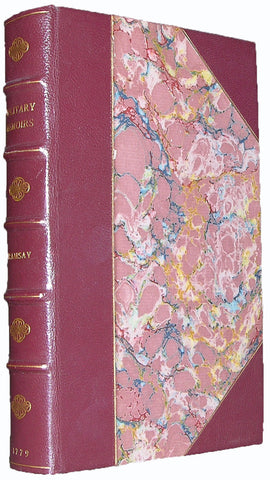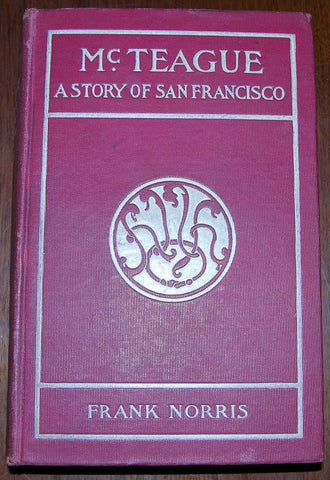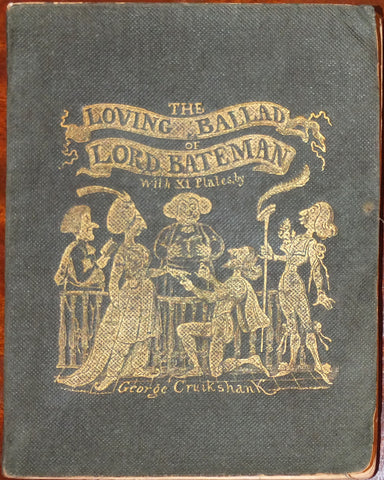William Cowper (1731-1800), Poems by William Cowper, of the Inner Temple, Esq.
William Cowper (1731-1800),
Poems by William Cowper, of the Inner Temple, Esq.
London: Printed for J. Johnson, 1782
8vo., (7 2/8 x 4 4/8 inches). Errata on final page. Fine contemporary French binding of full red morocco, gilt, all edges gilt.
Provenance: with the ownership inscriptions of several generations of Thompson ladies on the preliminaries.
An attractive copy of the first edition, in a beautiful French binding. E6 and I6 cancels, as usual, and without the Preface by John Newton found in a few copies. Cowper's Poems was his first collection of verse and includes such well-known works as "Table Talk," "Boadicea: an Ode," "Truth," "Hope," "Charity," and "Retirement."
In the four months "from December 1780 to March 1781 Cowper composed 2700 lines of verse. First of these ‘moral satires’ in pentameter couplets... was ‘The Progress of Error’, a renewed attack on Madan, broadened to scourge other corrupters of the public mind. ‘Truth’ sets up by contrast the evangelically inspired standards to which society should aspire. In ‘Table Talk’, two interlocutors debate politics and poetry by way of providing an introduction to what Cowper was beginning to think of as a second, more deliberate publication. ‘Expostulation’ presents Cowper as a prophet upbraiding the English for their national apostasy. In April 1781, when spring renewed opportunities for walking and gardening, Cowper thought these four poems, with a selection of shorter ones which he had by him, would make a satisfactory volume. Joseph Johnson, however, delayed his decision, allowing Cowper to complete four more long poems between May and October 1781. The book appeared in the first week of March 1782, its title asserting the gentility and professional affiliation of its retired yet engaged author in his first acknowledged publication: Poems by William Cowper, of the Inner Temple, Esq...Reviews of Poems were generally unfavourable, finding the moral satires dull and the humour of the shorter pieces merely passable. The wealthy merchant John Thornton sent a copy to Benjamin Franklin at Passy and received a complimentary acknowledgement, which he passed on to Cowper" (John D. Baird for DNB). Hayward 191; Rothschild 681.
We Also Recommend

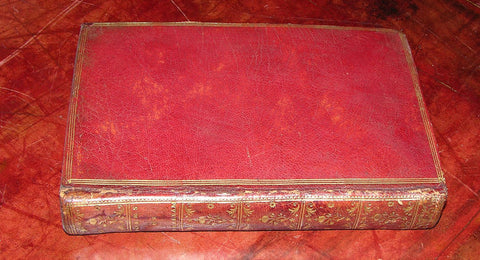

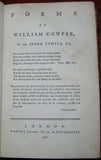
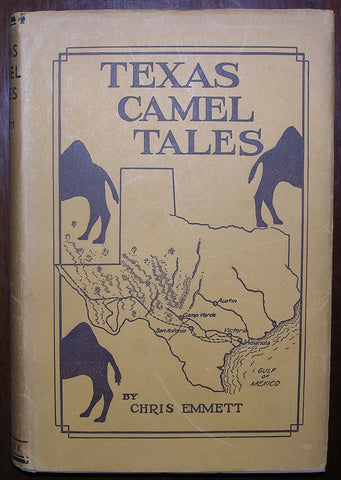
![Christopher Sauer/Sower II (1721-1784). Ein Einfaltiges Reim-Gedicht. [Probably Germantown: Gedruckt bey Leibert und Billmeyer, 1784]](http://aradergalleries.com/cdn/shop/products/DSCF4503_large.jpg?v=1544478572)
